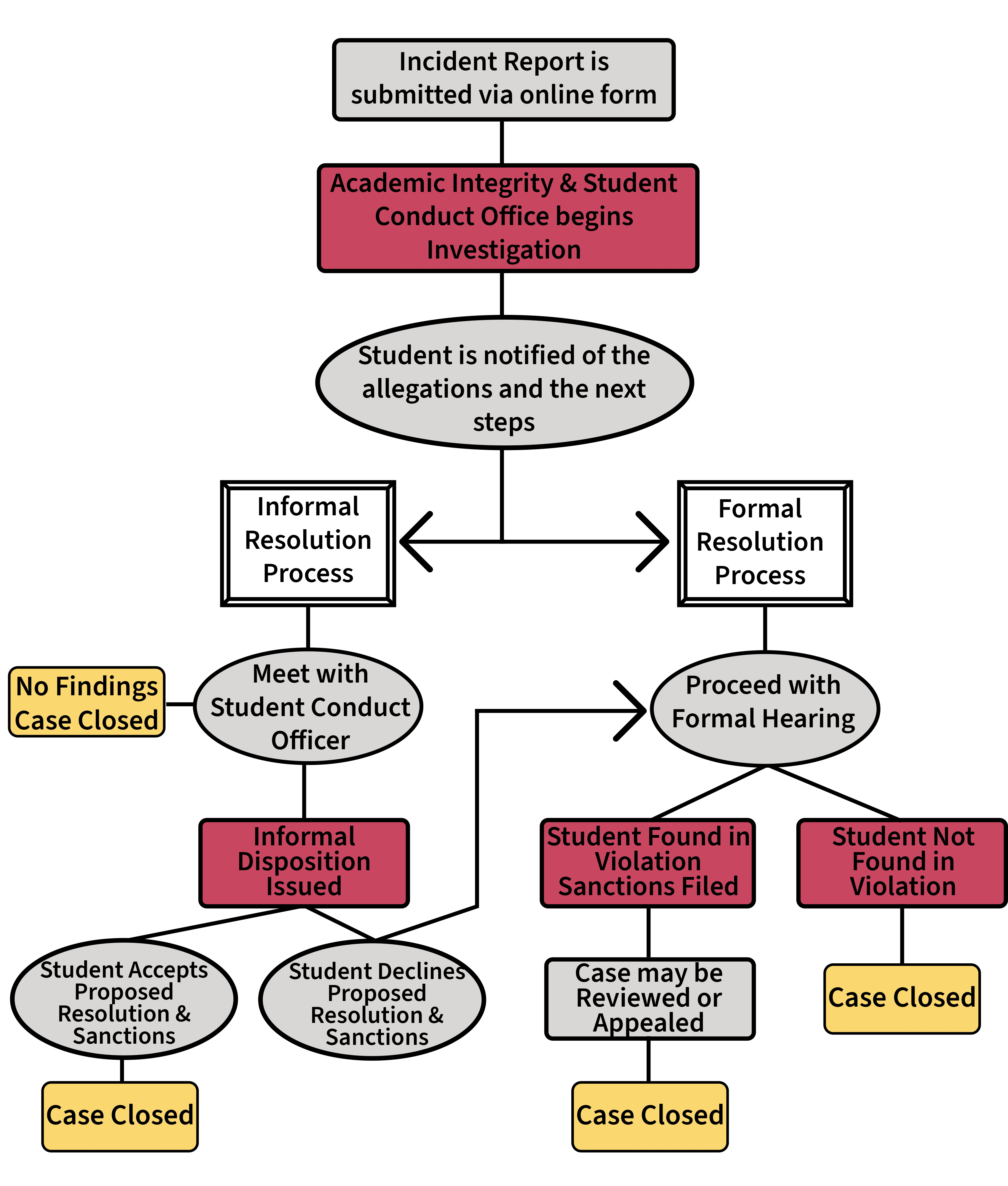Provided here is a step-by-step explanation of the student conduct judicial process to help clarify what the student should expect when going through the process. View the full text of the Rules and Procedures of Student Conduct Matters.
Notification
- A student will receive an email to their University email account requesting a meeting to discuss an incident that has occurred.
- The student must then schedule an appointment to meet within ten calendar days of the letter date.
During the Meeting
- The student will be explained the charges.
- The student will be granted the opportunity to respond to the charges.
- The student's rights will be discussed.
- An explanation of the Student Conduct process and procedures.
The Decision
- The student will be informed of the decision regarding the charges via University email.
- If the student is found not responsible, the process ends here.
- If the student is found responsible, a sanction or consequence will be assigned.
- The student may then accept or reject the decision.
The Options
- If the student chooses to accept the decision, the process ends here. Non-response to the decision email will be considered as acceptance of the decision.
- If the student chooses to reject the decision, they must communicate this rejection via email, and the case will then be referred to the Student Conduct Committee.
The Student Conduct Hearing
- The Student Conduct Committee will convene to determine the student's responsibility.
- The student will present their case and the Administrative Officer Designee (i.e. hearing officer) will present the University's case.
- The sanction assigned by the committee may be more, the same, or less severe than that originally assigned by the hearing officer.
The Appeal Process
- The student may appeal the decision of the Student Conduct Committee to the Chancellor or Designee. The appeal must be in writing and within ten calendar days after notification of the decision of the committee.
- The Chancellor or Designee may affirm, reverse, or remand the case for further proceedings.
- The action of the Chancellor or Designee shall be final unless it is to remand the matter for further proceedings.
